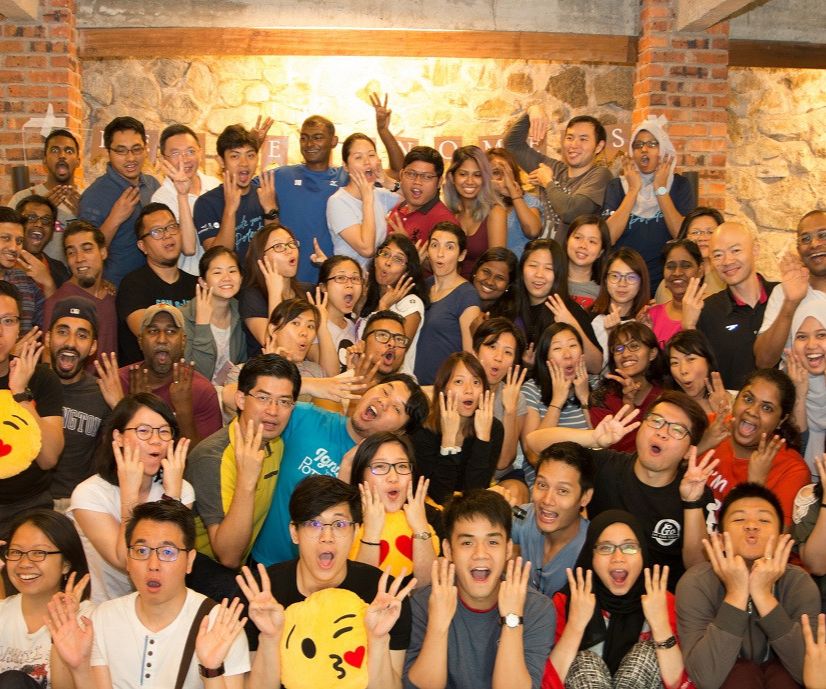A Brighter Future Requires HR Entrepreneurs

Swapping best practice for the bottom line
“Business savvy” for some in human resources (HR) is likely to be a shock. Many HR practitioners still adopt the paternalistic approach; that they know best and that line management must be trained to conform to HR “best practices” or risk minimisation.
After all, we know better what HR needs, don’t we?
Even for those who accept the principle of “business savvy”, everyone assumes they are already getting it right. “Oh yes, of course I understand my organisation!”
That’s like saying you know Airbus makes planes, therefore you know what kind of HR support that Airbus needs. That’s absurd but it’s not far off the knowledge level that some in HR have of their organisations’ activities.
Further assessment of the benefit delivered by HR is often done by HR people, not those on the receiving end. Never forget the principle that beauty lies is in the eye of the beholder, not the giver!
Business savvy organisation
Business savvy is about delivering a level of capability that matches what the organisation wants. In other words, meeting client needs rather than just delivering products.
But doesn’t the business partner model do this already? In theory, maybe, but in reality, sadly not.
Even those using the business partner model must significantly adapt it to ensure “business savvy” elements are in place to deliver organisational performance improvement.
Key elements are:
- a focus on business-driven prioritisation.
- alignment to key strategic objectives.
- delivery with clarity and simplicity.
HR must take a proactive, not reactive, approach as a key part of the business, and not be viewed as a separate ‘partner’ or advisor.
In reality, chief executive officers don’t really care about HR’s best practices: they just want the best bottom line. HR must reflect this by thinking and delivering in an innovative business-driven perspective, not a traditional risk-averse HR process or a legacy-driven one.
HR must think about long-term sustainability, not short-term fixes.
To be business savvy, we must therefore be HR entrepreneurs, not just business partners.
Need for HR entrepreneurs
The HR entrepreneur is an individual, at any level or location in HR, who has good professional HR knowledge.
The person also has critical “business savvy” capability via:
- Good core business knowledge, e.g. project management and customer service.
- Understanding of operational activity – nearly as well as the line managers they support.
- Understanding of the wider organisation and its strategic objectives, maybe even better than the line manager – so if the line manager diverges from these, the HR entrepreneur can help bring them back on track.
- Understanding of the environment and market within which the business operates.
- Constantly looking outward and benchmarking the organisation, not just against last year’s performance but against peers and possibly best-in-class standards.
- Demonstrates an innovative and entrepreneurial mindset to:
- be proactive in identifying ways to drive better business performance (not just HR) by looking for opportunities to improve external delivery.
- suggest initiatives that deliver maximum ROI (return of investment) for minimum resource and manage risk effectively by simplifying process where possible.
- focus on delivering what the organisation needs strategically to sustainably improve for the future.
A report from the Chartered Institute of Personnel and Development (CIPD), Business Savvy: Giving HR the Edge, was released in 2012 and it focuses on the need for HR leaders and practitioners to harness a deep understanding of and engagement with the wider business.
This change to “business savvy” mindset and approach is important. Line managers do not have HR savvy, so they don’t know how you can help, so “business savvy” enables HR to suggest the most appropriate support rather than standard “best practice”.
Further, it matches the development of the entrepreneurial leader within world class organisations, where a new proactive, innovative and flexible approach to business leadership is being seen.
However, the HR entrepreneur can function, even without the line being entrepreneurial. HR entrepreneurs can also be a catalyst to help develop entrepreneurial line management.
Any HR person on any level can be an HR entrepreneur. The HR entrepreneur’s single objective is to support the maximisation of organisational performance; that must be the benchmark for all activity.
So, entrepreneurial HR principles have to be applied everywhere, in both transactional and transformational HR activity.
We must also be prepared to remove HR activity that does not add optimum value to the organisation, even if it is seen as a ‘best practice’.
Research shows that the complexity involved in delivering objectives and managing risk has significant cost and impact on engagement. Thus over-complexity in HR is a risk to organisational performance.
Concluding thoughts
As business savvy HR entrepreneurs, we must focus on outcomes – not roles, titles, or process for process’ sake.
Everyone in HR has to think as an entrepreneur, accurately assessing the situation, innovating, being flexible and taking managed risk to drive better business bottom line.
There is no ‘best practice’, only the ‘best current outcome’ and this will vary between situations, organisations and times. This matches service delivery to organisational need.
If we can start to achieve this, “business savvy” will spread and help HR achieve the credibility it deserves.
Chris Roebuck (www.chrisroebuck.co) is a senior faculty at Leaderonomics and a visiting professor of transformational leadership at Cass Business School in London. He is a sought-after advisor and the developer of Mach 2 leadership – the combination of entrepreneurial, engaging, ethical and effective leadership. Follow him on Twitter @Chris__Roebuck. To engage Chris for organisational work in your organisation, email training@leaderonomics.com. For more HR Talk articles, click here.
Reposted with permission and published in English daily The Star, Malaysia, 9 May 2015
Functional
This article is published by the editors of Leaderonomics.com with the consent of the guest author.






